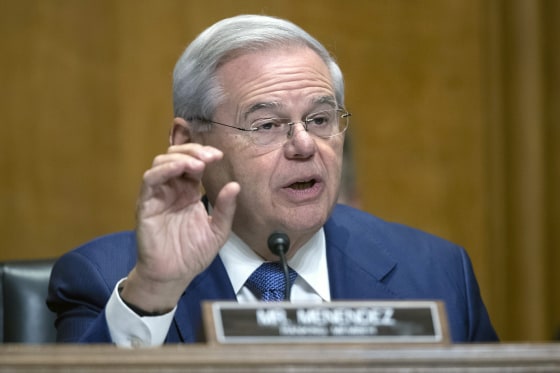As public health officials across the country struggle to get vaccination shots to the people hardest hit by the coronavirus pandemic, a Senate bill aims to address health inequities among communities disproportionately affected by the virus.
The COVID-19 Health Disparities Action Act, introduced Thursday by Sens. Bob Menendez, D-N.J., and Ben Cardin, D-Md., would support targeted and "culturally competent" public awareness campaigns about vaccines and preventive measures in underserved communities, such as wearing masks and maintaining social distance.
"The pandemic has only magnified the racial and ethnic health disparities that have existed in this country for far too long," Menendez said in an emailed statement. "The fact remains that fewer people in underserved and minority communities are getting vaccinated, compared to other communities, even though they are more likely to be infected or die from COVID-19. We can and must do better."
The bill would direct the Department of Health and Human Services, acting through the Centers for Disease Control and Prevention, to develop public awareness campaigns to address disparities in testing, hospitalizations and deaths among racial and ethnic minority groups. It would also instruct the health department to create grant programs for community-based public awareness campaigns about vaccinations, testing and preventative measures.
“Communities of color have disproportionately borne the impact of the coronavirus pandemic in Maryland and nationwide,” Cardin said. “Given that these at-risk communities faced barriers in accessing care before the pandemic and such problems have been greatly exacerbated, our communications must be culturally tailored and from trusted messengers."
The bill was first introduced in July, but it did not come up for a vote. It is co-sponsored by 14 senators, including Amy Klobuchar, D-Minn., Bernie Sanders, D-Vt., and Cory Booker, D-N.J.
Menendez and Cardin also sent a letter Thursday to the Biden administration, co-signed by eight Democratic senators, urging federal officials to include racial and ethnic data on the CDC's national vaccine dashboard.
As of Wednesday, the CDC had reported racial and ethnic data for just 54 percent of all people who had received both doses. More than 65 percent were white, compared to 8 percent who were Latino, 5.8 percent who were Black, 5 percent who were Asian and 1.7 percent who were Native American. By contrast, data by age were available for 92 percent of all people vaccinated.
"It is critical that our federal database tracks nationwide distributions of vaccines to states, territories, and tribes, and collects robust demographic information to ensure at-risk communities are being vaccinated appropriately," the senators wrote.
They added that comprehensive vaccine data are "crucial for helping public health officials evaluate how to efficiently and equitably distribute COVID-19 vaccines across the United States."
"It is also a crucial tool to aid public health officials in identifying the barriers minority communities face in receiving a COVID-19 vaccine and determine where vaccine hesitancy may persist," they wrote.
President Joe Biden held a series of meetings this week with leaders from communities experiencing high levels of vaccination hesitance in anticipation of launching a campaign next month to build confidence and dispel doubts. The meetings included Black community leaders, Latino group leaders, faith leaders and Americans in rural communities.
It was part of a larger strategy by the Biden administration to lessen the disparities experienced by racial and ethnic minority groups during the pandemic.
"To defeat this pandemic, we must reach all people, from all backgrounds and communities with the lifesaving vaccines that are going to help them protect themselves and their friends and families from this deadly virus," Dr. Marcella Nunez-Smith, who leads the White House's Covid-19 Health Equity Task Force, said in a statement.

